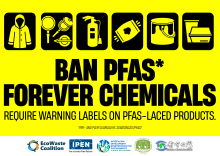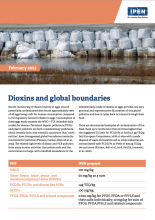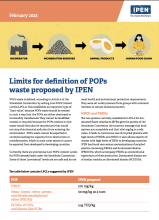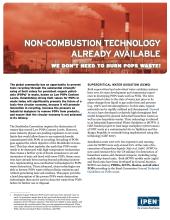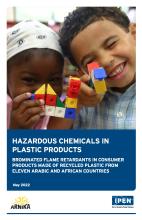Why Low POPs Content Levels Matter
Strong limits for POPs in waste supported by IPEN
- PCDD/D + dl PCBs - 1 ppb (1 microgram TEQ/kg)
- PBDEs (tetra-, penta- hexa-, hepta-, decaBDE): 50 mg/kg as a sum
- HBCD - 100 mg/kg
- SCCP - 100 mg/kg
- PFOS, PFOA or PFHxS and their salts individuall

